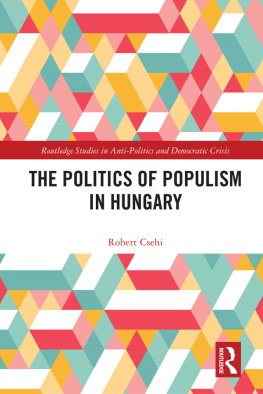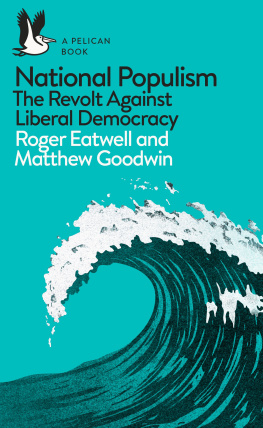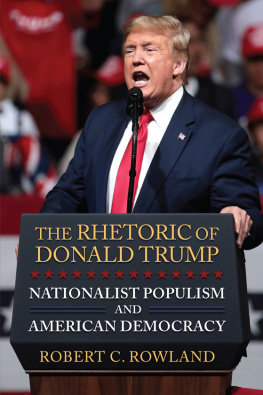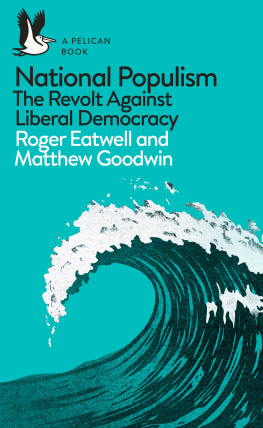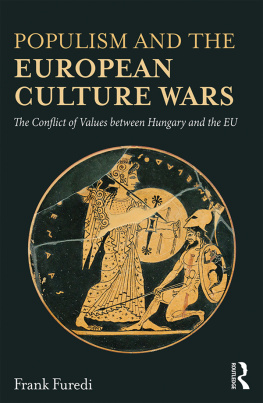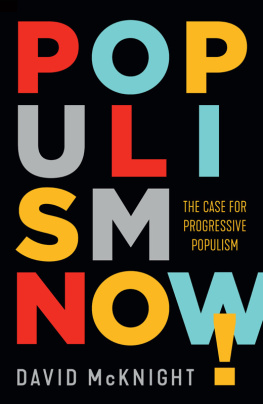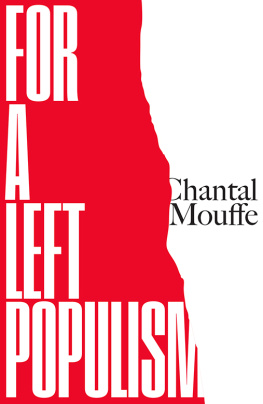The Politics of Populism in Hungary
The book assesses the development of the Orbn regime in Hungary after 2010 through analyzing the polity-politics-policy impacts from a perspective of populism as an ideology focusing on discourse and actual decisions.
By closely scrutinizing political narratives, actual decisions and survey data, this volume offers a systematic analysis of the impact of populism on the polity-politics-policy aspects of the political in Hungary after 2010. It analyzes the uses of constitutionalism and discriminatory legalism, the changes in the quality of democracy, the governments relationship with media and journalism, its influence over the party system and EU politics, and its approach to family and cultural policies. While each chapter in the volume describes the findings in response to the corresponding literature, highlighting the added value of the individual analyses, the book interprets the overall results under the notion of smart populism where the moral definition of the people allows for little political opposition, the elite is selected based on its multifaceted applicability for a political narrative and the will of the people is determined from above. The volume also suggests responses to smart populism.
The book will be of particular interest to students and scholars of democracy, party politics the rise of populism and contemporary Hungarian politics.
Robert Csehi is a political scientist researching and teaching at the Bavarian School of Public Policy.
Routledge Studies in Anti-Politics and Democratic Crisis
Series Editors: Jack Corbett, University of Southampton and Matt Wood, University of Sheffield
This book series aims to provide a forum for the discussion of topics and themes related to anti-politics, depoliticisation, and political crisis. We supposedly live in an anti-political age in which popular disaffection threatens to undermine the very foundations of democratic rule. From the rise of radical right wing populism through to public cynicism towards politicians, institutions and processes of government are being buffeted by unprecedented change that have in turn raised questions about the viability of seemingly foundational practices. The series is intentionally pluralistic in its geographic, methodological and disciplinary scope and seeks works that push forward debate and challenge taken-for-granted orthodoxies.
For a full list of available titles please visit www.routledge.com/Routledge-Studies-in-Anti-Politics-and-Democratic-Crisis/book-series/RSAPDC
Refiguring Democracy
The Spanish Political Laboratory
Ramn A. Feenstra, Simon Tormey, Andreu Casero-Ripolls and John Keane
Re-thinking Contemporary Political Behaviour
The Difference that Agency Makes
Sadiya Akram
Political Meritocracy and Populism
Cure or Curse?
Mark Chou, Benjamin Moffitt, and Octavia Bryant
Liberal Disorder, States of Exceptions, and Populist Politics
Edited by Valur Ingimundarson and Sveinn M. Jhannesson
The Politics of Populism in Hungary
Robert Csehi
The Politics of Populism in Hungary
Robert Csehi
First published 2022
by Routledge
2 Park Square, Milton Park, Abingdon, Oxon OX14 4RN
and by Routledge
52 Vanderbilt Avenue, New York, NY 10017
Routledge is an imprint of the Taylor & Francis Group, an informa business
2022 Robert Csehi
The right of Robert Csehi to be identified as author of this work has been asserted by him in accordance with sections 77 and 78 of the Copyright, Designs and Patents Act 1988.
All rights reserved. No part of this book may be reprinted or reproduced or utilized in any form or by any electronic, mechanical, or other means, now known or hereafter invented, including photocopying and recording, or in any information storage or retrieval system, without permission in writing from the publishers.
Trademark notice: Product or corporate names may be trademarks or registered trademarks, and are used only for identification and explanation without intent to infringe.
British Library Cataloguing-in-Publication Data
A catalogue record for this book is available from the British Library
Library of Congress Cataloging-in-Publication Data
Names: Csehi, Robert, author.
Title: The politics of populism in Hungary / Robert Csehi.
Description: Abingdon, Oxon ; New York, NY : Routledge, 2022. |
Series: Anti-Politics and Democratic Crisis series|
Includes bibliographical references and index.
Identifiers: LCCN 2021013623 (print) | LCCN 2021013624 (ebook) |
ISBN 9780367476861 (hardback) | ISBN 9781032075679 (paperback) |
ISBN 9781003035862 (ebook)
Subjects: LCSH: Populism--Hungary. | Hungary--Politics and government--21st century.
Classification: LCC JN2067 .C74 2022 (print) |
LCC JN2067 (ebook) | DDC 320.56/6209439--dc23
LC record available at https://lccn.loc.gov/2021013623
LC ebook record available at https://lccn.loc.gov/2021013624
ISBN: 978-0-367-47686-1 (hbk)
ISBN: 978-1-032-07567-9 (pbk)
ISBN: 978-1-003-03586-2 (ebk)
DOI: 10.4324/9781003035862
Typeset in Times New Roman
by Newgen Publishing UK
For my wife without whom this would not have been possible
Contents
PART I
Polity impact
PART II
Politics impact
PART III
Policy impact
Robert Csehi is a political scientist researching and teaching at the Bavarian School of Public Policy. His research interest focuses on two major fields: European integration and populism studies to which topics he also offers courses in Munich. His previous works appeared among others in West European Politics, the Journal of European Public Policy and Democratization. He received his PhD from the Central European University, and has been a reviewer at various high-quality journals, as well as a member in different research projects on the EU.
The purpose of a writer is to keep civilization from destroying itself
Albert Camus
While the above quote might well have been meant for literary work only, I believe that books addressing the complexity of politics may also carry the same practical and normative burden. For long, I have been a passive observer of political developments in my home country, Hungary. However, as public discourse has continued to slowly but steadily deteriorate in the past ten years, leading to an extreme polarization of the society, I felt more and more that I should contribute my two-cents to the debate which aimed to understand the nature of the emergent regime. Populism does not only use morality as a tool to divide society into honest and corrupt groups, as will be shown, but I have been increasingly convinced that it triggers a normative approach as well: critically engaging with the challenge posed by populism has become a must for me. By understanding the ins and outs of the phenomenon, I hope to contribute to the potential slowing and countering of its fallout. While such an intention may be objectively deemed noble, I am the first to acknowledge the limits of the likely influence of the finished product. I would humbly ask the reader to consider everything that follows as the first statement in a dispute.


